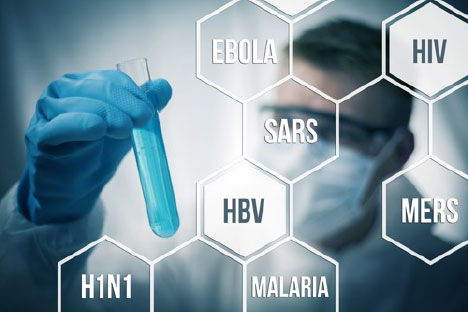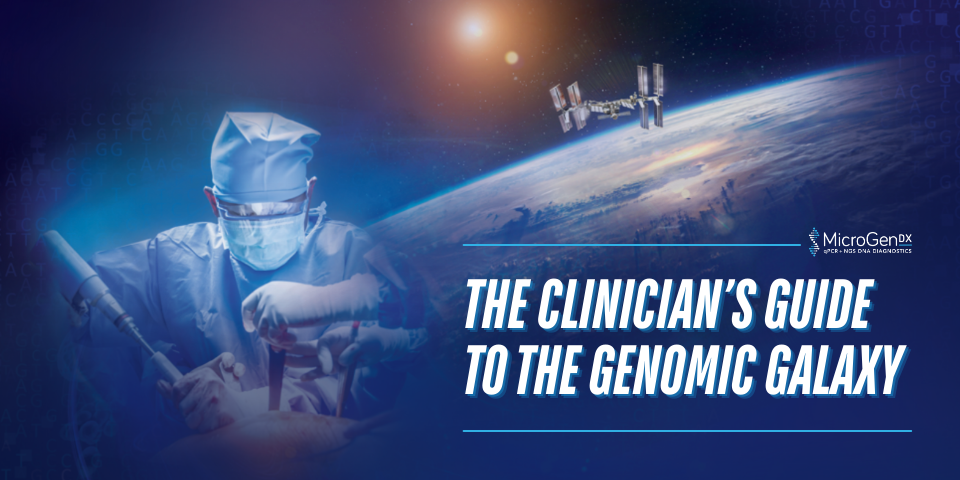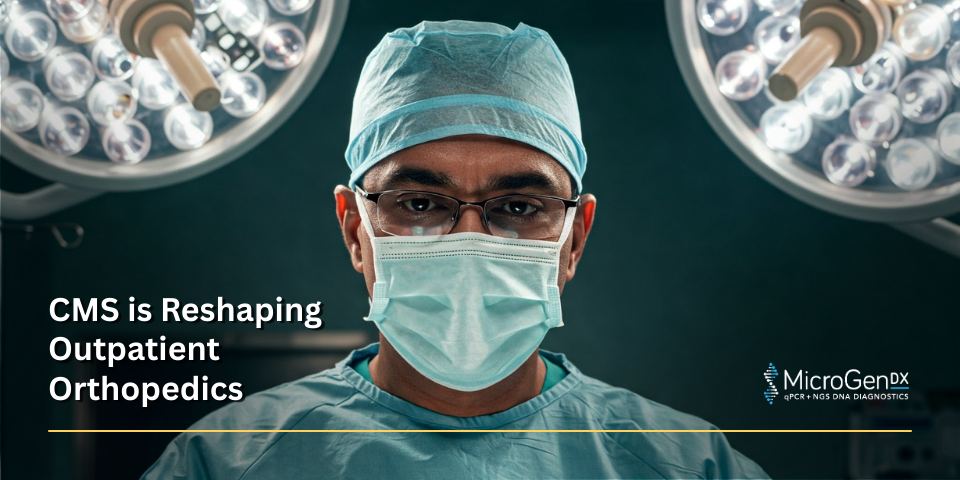Next-Generation Sequencing (NGS) can be used to diagnose infectious diseases more rapidly and more accurately than traditional methods such as cultures, gram staining, and other biochemical and molecular tests that are organism-specific. In one reported case, NGS correctly identified the infectious organism after nearly 40 different diagnostic tests on 10 sample types.
In another scenario, in cases of sepsis, timely targeted treatment with rapid identification of the microbial pathogen can be lifesaving. Instead of delaying diagnosis by ordering and waiting for organism-specific microbiology identification and susceptibility results, MicroGenDX’s qPCR+NGS can identify the bacterial, viral, or fungal source of infection and assist in tailoring the treatment plan.
In a study conducted by MicroGenDX, NGS was capable of predicting failures in total joint arthroplasty due to infection. Dr. Javad Parvizi, a co-author of the multicenter study, stated that “numerous recent studies indicated that patients with periprosthetic joint infection have a five-year mortality rate. We are sorely in need of a technology that can provide concrete, quantifiable improvements in patient care.”
Dr. Parvizi believes that MicroGenDX’s qPCR+NGS addresses these pressing challenges. While traditional microbiology laboratory tests are ordered specifically for organisms among the differential, MicroGenDX NGS can provide information on all microorganisms present in the sample regardless of the differential. Thus, the power of MicroGenDX’s NGS results, whether positive or negative, dramatically accelerates the process of diagnosis and treatment.
How to keep up with the emergence of new pathogens
 Multiple new SARS-CoV-2 (COVID-19) variants have been reported throughout the past year. With new variants come new challenges that have emerged, including concerns that specific variants have increased mutation rates, higher rates of spreading, or even resistance to vaccinations.
Multiple new SARS-CoV-2 (COVID-19) variants have been reported throughout the past year. With new variants come new challenges that have emerged, including concerns that specific variants have increased mutation rates, higher rates of spreading, or even resistance to vaccinations.
Indeed, even those who are vaccinated face risks from emerging SARS-CoV-2 variants. In a recent study published in the New England Journal of Medicine, two individuals tested positive for SARS-CoV-2 despite completing their vaccination courses. As more variants of the virus are detected and sequenced, it becomes more critical to accurately see the infected patients’ specific variant.
Earlier identification of SARS-CoV-2 provided by MicroGenDX can provide information on the emerging strains of pathogens in your patient population and help monitor the spread of these variants. This information can help us gather data on which strains are more likely to cause breakthrough infections in those who are vaccinated, inform public health policies, and guide treatment.
Sequencing infectious agents can push forward medical management
 The American Academy of Microbiology reported that NGS methods could enhance our understanding of how microbials function in the body during both healthy and disease states. In addition to infectious microbials, the human microbiome has also garnered more attention in recent years.
The American Academy of Microbiology reported that NGS methods could enhance our understanding of how microbials function in the body during both healthy and disease states. In addition to infectious microbials, the human microbiome has also garnered more attention in recent years.
Understanding the human microbiome by comprehensive sequencing may lead to novel insights into how the gut, skin, and other body parts interact with the environment and change with disease states. These findings may guide therapeutic research and lead to new treatments in the future.
NGS has the potential to play an essential role in public health. The monitoring of food safety can be further enhanced by detecting harmful pathogens efficiently and precisely by sequencing their DNA. In addition, outbreaks of foodborne illnesses and tracing the outbreak’s source can be done by sequencing food samples.
With the increasing emphasis on Precision Medicine in the past decade, NGS has the potential to guide treatment while accounting for individual variability of both the patient and the microbe(s). This is especially critical when facing rare infectious agents or non-endemic diseases. Instead of long delays in diagnosis due to lack of organism-specific tests, NGS can precisely identify the organism based on DNA sequencing.
A case study published in the Journal of Clinical Microbiology described a diagnostic challenge where Gram stain, culture, and molecular diagnostics all showed nondiagnostic or conflicting results. However, using an NGS assay, doctors discovered that a mastoid infection had two infectious agents (both Actinomyces israelii and Fusobacterium nucleatum), enabling the doctors to provide the patient with appropriate therapeutics.
MicroGenDX qPCR+ NGS reports are the fastest and least expensive in the industry

Over the last 12 years, MicroGenDX has performed more than 400,000 DNA tests and maintains a validated microbial database of over 50,000 reference microbes. The accumulated experience allows MicroGenDX to provide high-quality test results with a mean accuracy rate of 99.2%, in addition to a rapid turnaround time of less than four days with competitive pricing.
Dr. James Snyder, director of Microbiology and Infectious Disease Molecular Diagnostics at the University of Louisville Hospital, stated that “NGS is the future, and we need to adapt to it.”
Working with MicroGenDX, Dr. Snyder solved a difficult case of fungus infection that the traditional methods failed to identify. He explained that clinicians are aware of and are demanding rapid diagnostic assays such as microbiology NGS assays. MicroGenDX meets these needs and helps the hospital prepare for the future.
Describing his experience visiting MicroGenDX, Dr. Snyder said, “I was particularly impressed with the vision for growth and desire for feedback at MicroGenDX.”
Not only can NGS provide a faster diagnosis compared to traditional methods, but the information also guides treatment choices within a clinically relevant time frame. To learn more, visit https://microgendx.com/next-generation-sequencing-infectious-pathogens/



